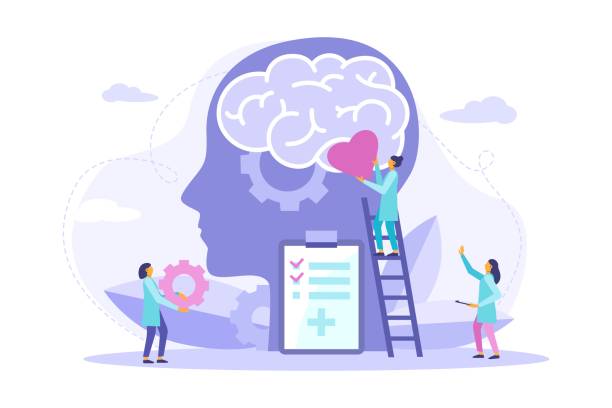Table of Contents
ToggleIf you’re looking for a way to change yourself, therapy can be a good place to start. It can help you come to understand yourself better, make better decisions, and have more empathy for other people’s struggles. There are many different kinds of therapy—we’ll cover some here that might be helpful if you want to improve something specific about your life.
Therapy can help you improve your relationship with yourself and others

In therapy, we’ll address relationship challenges, build healthy bonds, and resolve conflicts successfully. You’ll benefit from the therapeutic experience.
Therapists boost self-esteem, teach communication, and foster trust in relationships.
Therapy fosters self-acceptance, embracing strengths and disregarding external judgments for inner confidence.
Therapists motivate self-improvement, offering a safe space for discussing challenges, leading to improved well-being.
Therapy can help you turn down the noise in your head and make better decisions.

Negative thoughts and images harm our mental health when we feel sad or anxious. Therapy enhances our understanding of emotions, empowering us to control them instead of being controlled.
Therapists teach us how our thoughts affect ourselves and others, empowering individuals with depression or anxiety disorders to manage their conditions effectively through self-care practices, including exercise and medication management programs for chronic diseases like CFS.
Therapy can give you a safe place to practice new ways of being.

Remembering that therapy is not about fixing problems or making you feel better is important. Instead, therapy focuses on helping you learn how you fit into the world, what gives meaning to your life, and how to best connect with others.
Through therapy, you can learn about yourself by exploring topics such as:
- Your motivations for change (Why do I want this?)
- How did your past experiences shape who you are today (What did I learn during those times?)
Additionally, therapy can assist individuals in developing healthier relationships with friends, family members, and romantic partners. It encourages open communication about feelings, rather than suppressing them until they unexpectedly erupt later on.
Therapy can change the way you relate to your emotions, thoughts, body, and behaviors.

Therapy can facilitate a change in how you think, feel, and behave. You can acquire the skill of distinguishing your thoughts from your feelings more effectively. For instance, instead of experiencing immediate anger or sadness when someone utters something hurtful, you can take a few minutes to analyze the reasons behind their words and evaluate whether there is any truth to their claims before responding negatively.
During therapy sessions, we enhance our ability to manage emotions in everyday situations by acknowledging them without judgment or self-blame. This includes handling disagreements with friends, partners, or family members over trivial matters such as scheduling plans, dealing with negative comments from uninformed strangers, and confronting disheartening news about athletes losing jobs despite winning championships.
Therapy can help a person learn how to better manage stress.

Therapy helps individuals experiencing stress by providing invaluable support to overcome and manage this challenge. Engaging in therapy is widely regarded as one of the most effective measures to prioritize and nurture emotional health and overall well-being.
By actively participating in therapy, you empower yourself with tools and techniques tailored to your specific needs, enabling you to navigate the complexities of stress more effectively. Through collaborative discussions and evidence-based interventions, therapy equips you with practical strategies to alleviate the impact of stress on your daily life.
Therapy helps you develop skills you can use for the rest of your life
The skills you learn in therapy can transfer to other areas of your life. You can utilize these skills to enhance your relationships with others, improve your relationship with yourself, and even increase your effectiveness at work.
How does it work? Well, let’s consider a scenario where someone close to you engages in negative self-talk or criticizes others around them. This person may require assistance in comprehending the reasons behind such behavior and how they can modify it to prevent recurrence (or at least reduce its frequency). Alternatively, imagine a friend who feels frustrated at work due to being underpaid compared to colleagues with higher educational qualifications.
By acquiring effective communication skills, this individual can advocate for what she deserves from the company without engaging in arguments or jeopardizing her job over an issue that may not be worth fighting for!
Therapy can help you come to life with unresolved loss or grief.

Grief is a process that can take years, and it’s not easy to get through. Some people find that they have trouble accepting their loss and feeling okay again.
Others might be afraid of dealing with the pain they feel in their hearts, which makes it hard for them to move forward in life. Therapy helps us learn how best to cope with our emotions so we can move forward into our futures without holding onto things from the past too tightly.
Therapy can give you more empathy for other people’s struggles.

Empathy, the remarkable human capacity, allows individuals to deeply connect with others by sharing and experiencing their emotions firsthand. It is not merely about comprehending what someone else is going through; it goes beyond understanding and extends into the realm of genuine emotional connection.
When we possess empathy, we are not just observers but active participants in the emotional journeys of those around us. We not only perceive their joys, sorrows, fears, and hopes but also step into their shoes and feel the very essence of their experiences. This profound ability enables us to forge meaningful connections with others, transcending the boundaries of our own perspectives.
The benefits of therapy are immense.
The immense benefits of therapy await those who seek to make changes in themselves. If you wish to transform something about yourself, therapy provides an excellent starting point.
In therapy, you can gain a better understanding of yourself.
Therapy goes beyond mere behavioral changes; it involves learning how our thoughts impact us physically and emotionally and empowers us to modify those thoughts, freeing us from their negative effects.










